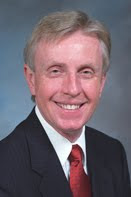 The 82nd Texas legislative session adjourned on Monday without hearing HB 117, which would have allowed local options for setting up disease prevention programs including syringe exchange. It would appear that conservative politics and a one member hold up prevented the bill from receiving a hearing in the House Committee on Public Health, despite pleas for a hearing from concerned individuals, officials, and community and medical organizations across Texas including county judges and sheriffs, Texas Hospital Association, Texas Infectious Diseases Society, Mothers Against Teen Violence, Association of Nurses in AIDS Care, Texas Medical Association, and many others.
The 82nd Texas legislative session adjourned on Monday without hearing HB 117, which would have allowed local options for setting up disease prevention programs including syringe exchange. It would appear that conservative politics and a one member hold up prevented the bill from receiving a hearing in the House Committee on Public Health, despite pleas for a hearing from concerned individuals, officials, and community and medical organizations across Texas including county judges and sheriffs, Texas Hospital Association, Texas Infectious Diseases Society, Mothers Against Teen Violence, Association of Nurses in AIDS Care, Texas Medical Association, and many others.The legislature will not meet again for a regular session until January 2013. While similar legislation made history last session, we've lost some ground this session; making it even more important to continue to build coalitions, maintain support, and keep stakeholders engaged during the interim.
As this blog stated in 2009:
"So what now?
Over the summer House Speaker Joe Straus will be considering the issues he will direct House Committees to study during the interim. In order for House members and the public to have an even better understanding of the need for allowing syringe exchange programs to operate throughout Texas, it would be wonderful to see Speaker Straus direct the Public Health Committee to investigate the issue further and to provide a space for regional feedback on the issue from the public.
The committee could review the effectiveness of current efforts in Texas to curb the spread of HIV and hepatitis B & C among Texas' injection drug using population, and provide recommendations for how these efforts could be improved in order to save lives and reduce indigent health care costs to the state. Committee members might even be directed to travel to a state such as Maryland to visit longstanding successful syringe exchange programs where they can witness firsthand the measurable benefits of allowing such programs."
Remind yo
 ur legislators why this issue is an important, compassionate, cost-saving and lifesaving measure during the remainder of their term in office, and especially during election season in 2012. Let them know that you, the constituent, are concerned about skyrocketing rates of HIV and hepatitis C in Texas. Let them know that you support measures to not only reduce disease, but reach out to individuals and families struggling with addiction; in order to build a network of support on a foundation of compassion and non-judgement.
ur legislators why this issue is an important, compassionate, cost-saving and lifesaving measure during the remainder of their term in office, and especially during election season in 2012. Let them know that you, the constituent, are concerned about skyrocketing rates of HIV and hepatitis C in Texas. Let them know that you support measures to not only reduce disease, but reach out to individuals and families struggling with addiction; in order to build a network of support on a foundation of compassion and non-judgement.














